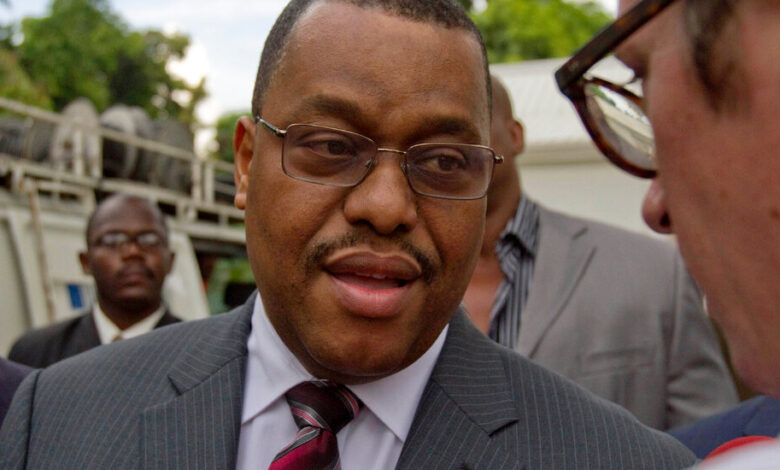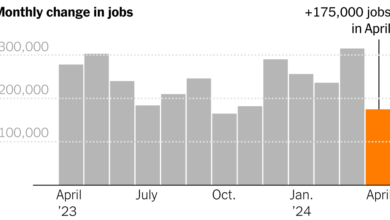Haiti Names New Prime Minister to Try to Lead Country Out of Crisis

An experienced international aid official, Garry Conille, was unanimously appointed prime minister of Haiti by a Presidential Transition Council on Tuesday, which tasked him with leading the country out of its current crisis until elections for a new president can be held.
Mr. Conille will take on his new role just as a U.N.-backed security mission led by Kenyan police is scheduled to begin operations in the violence-torn Caribbean nation, which is battling to restore political stability and tackle armed gangs who control large parts of the capital, Port-au-Prince.
Fluent in English, French and Creole, Mr. Conille’s credentials include a 25-year career working for the United Nations and other aid agencies. He also briefly led Haiti as prime minister over a decade ago during another period of crisis following the devastating 2010 earthquake.
But Mr. Conille has spent many of the last few years outside the country, and his perhaps rusty domestic political skills are sure to be tested by the highly volatile situation he will encounter as prime minister.
He will not, however, have to face any political battles with Haiti’s fractious Parliament, which has sat vacant for months because of the country’s inability to hold elections amid the violence and turmoil.
“He is a safe choice to appease the international community, but he’s also spent the last two decades working mostly outside Haiti in the U.N. system,” said Jake Johnston, a Haiti expert at the Center for Economic and Policy Research.
A doctor by training, he also received a master’s degree in public health from the University of North Carolina. Mr. Conille helped coordinate Haiti’s reconstruction efforts after the cataclysmic 2010 earthquake, which the Haitian government says killed 316,000 people.
Then, in 2011, he became prime minister, but he resigned only four months later after he clashed with then-President Michel Martelly over an investigation into corruption involving contracts to rebuild the country.
Mr. Conille, 58, succeeds Michel Patrick Boisvert, who was named interim prime minister after Ariel Henry resigned the office in late April. Mr. Henry was forced to step down after he was effectively locked out of the country by the gang violence that closed Port-au-Prince’s international airport and prevented him from returning from a trip to Kenya to sign an agreement for the U.N.-backed security mission.
The Kenyan police officers are expected to head to Haiti next month with a daunting mission to help restore order to a country where more than 4,000 people have been killed or injured in gang-related violence this year alone.
U.S. military planes filled with civilian contractors and supplies have already begun landing in Haiti, paving the way for the seven-nation security mission, funded in large part by a commitment of $300 million by the Biden administration.
Mr. Conille will assume responsibility for running the country alongside the transition council, which was appointed to fill the void after Mr. Henry’s ouster. The nine-member transition council holds some presidential powers and was appointed to steer the country until elections can be held and a new president takes office, which is planned to happen by early 2026.
Haiti has been without a president since the assassination in July 2021 of Jovenel Moïse by armed men who broke into his bedroom and gunned him down in front of his wife. His murder is still under separate investigations in Haiti and Florida, with a trial scheduled to take place in Miami in January.
Five people, including two former soldiers in Colombia, have already pleaded guilty in the United States and been sentenced to life in prison.
Over the last 25 years, Mr. Conille has worked with the United Nations, serving in Africa and the Caribbean, and has also held senior positions with the International Federation of the Red Cross and Red Crescent Societies. His most recent post, since January 2023, was serving as regional director for Latin America and the Caribbean at UNICEF, the U.N. Children’s Fund.
Andre Paultre contributed reporting from Port-au-Prince.



